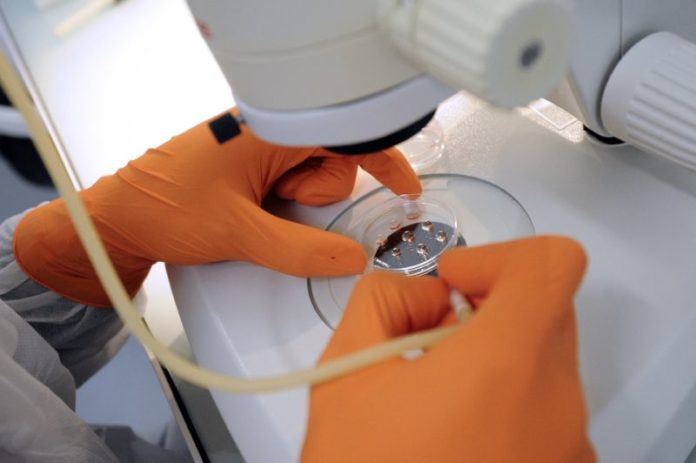TOKYO, Feb 7, 2019 (BSS/AFP) – Scientists said Wednesday they have
successfully used mice stem cells to grow kidneys in rat embryos, using a
technique that could one day help grow human kidneys for transplant.
But the researchers cautioned that their success was only a first step and
that “serious technical barriers and complex ethical issues” remain before
the process could be used for human organs.
The technique has previously been used to grow mice-derived pancreases in
rats, but the new study is the first evidence that it could one day provide a
solution to the massive shortage of donor kidneys for people with renal
disease.
The research, published Wednesday in the Nature Communications journal,
began with the development of a suitable “host” in which the kidneys could be
grown.
The researchers collected rat embryo structures that had been genetically
modified so they would not develop kidneys on their own.
The embryos were then injected with pluripotent stem cells from mice and
implanted into rat wombs so they could be carried to term.
Pluripotent stem cells are a kind of “master” cell that can develop into
any of the cells and tissue that make up the body.
The researchers found that the mice stem cells produced apparently
functional kidneys in the rats.
But the same did not hold when rat stem cells were injected into similarly
modified mice embryos.
– Short-lived subjects –
“Rat stem cells did not readily differentiate into the two main types of
cells needed for kidney formation,” said Masumi Hirabayashi, an associate
professor at Japan’s National Institute for Physiological Sciences, who
supervised the study.
Conversely, “mouse stem cells efficiently differentiated… forming the
basic structures of a kidney,” he told AFP.
The reason for the difference is still not entirely clear, but the
researchers believe “environmental cues” inside the mice are likely to blame,
rather than the stem cells or technique.
But even in the rat embryos, the technique was not without problems.
While the rats developed apparently functional kidneys, including with
proper connections to the ureter — tubes that link the kidneys to the
bladder — they died shortly after birth because they did not suckle
properly.
Removing the genes that allow kidneys to develop in utero appears to have
also removed their sense of smell, so the newborns failed to detect milk and
died.
Their short lives meant limited testing could be done on their kidney
function, but Hirabayashi said the organs appeared functional “based on
anatomical observations.”
There are other concerns: growing a kidney in a host from another species
could lead to “contamination” of the organ with cells from the host.
– Ethical concerns –
And the process of growing human organs in animals poses an ethical
conundrum because human stem cells could develop into brain or reproductive
organ cells in the host.
“The main ethical concerns are the risk of consciousness and/or gamete
(reproductive cell) production,” said Hirabayashi.
“There are serious technical barriers and complex ethical issues that must
be discussed and solved before producing human organs in animals,” he added.
In the short-term, additional research is likely to focus on ways to
genetically modify host rats without lethal side effects.
If successful, researchers will then want to run more tests on the stem
cell-derived kidneys, and try to transplant them from the hosts to other
animals.
Eventually, tests could involve trying to grow human organs.
Pigs are usually considered the best hosts for human organ regeneration,
but pig embryos only develop for 16 weeks, unlike the 40 weeks that human
babies grow, meaning the species might not be suitable for growing organs in
embryos.
Cattle, with a 40-week gestation, could be another option.
Hirabayashi said he was hopeful he would see human organs grown in animal
hosts in his lifetime.
“I don’t know exactly the end of my lifetime — tomorrow? Thirty years?
But I very much expect to hear news regarding the practical application of
animal-hosted organs.”



